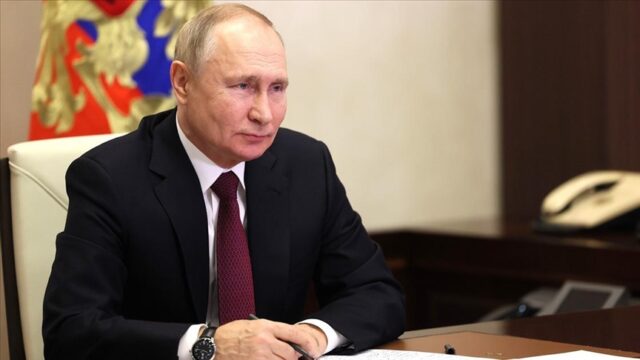Ksenia Kirillova

First, the war has caused an unusually high level of support among the Russian public for the Russian authorities and Putin personally; in recent years, before the invasion, this rating had been steadily declining (Radio Svoboda, May 25, 2019). Even independent sociologists, for example, the scientific director of the Levada Center (labeled as a “foreign agent” in Russia), Lev Gudkov, admit that public support is “not very clearly expressed, but quite tangible for the authorities and the war itself in society.”
According to Gudkov, approval for the war among Russians remains around 70 percent. Yet, at the same time, 50 percent of respondents want the fighting to end. He notes that this duality is partly due to the fact that many Russians are deeply aware of the war’s criminal nature but prefer to isolate themselves from the unpleasant truth and avoid receiving objective information (Eurasia Review, February 17). Another factor that ensures passive support for the war from the majority of the population is the constant stream of propaganda that paints a harrowing future in the case of Russia’s defeat (Readovka, October 6).
Pro-Kremlin sociologists say that the lack of stability is having a negative impact on public sentiment. However, they immediately reassure the Russian authorities that this “does not affect the ratings of trust in the country’s leadership, since the prolongation of the special military operation means the prolongation of the effects of the consolidation of society and power” (T.me/russica2, February 6).
Realizing this, Moscow is not only dragging out the war but also trying to draw the entire Russian society into the conflict. At the regional level, the creation of volunteer organizations and initiative groups to help the mobilized has been encouraged. Sometimes even schoolchildren and students are forced to participate (see EDM, November 28, 2022). In cities, medical and hygienic supplies are being collected for the military, and in some regions, students are forced to stand in for mobilized workers at their places of employment (see EDM, February 6).
Despite all these efforts, even pro-Kremlin sociologists state that the majority of Russian society remains apolitical and the level of involvement in the military effort is steadily declining (T.me/russica2, February 4). This is confirmed by a recent study from the Levada Center, according to which the number of people closely following military operations in Ukraine is declining. Nevertheless, sociologists counter that society is mentally ready to continue the “special military operation” for a long time (Levada.ru, February 2).
Overall, the number of radical patriots who actively support the war, though they represent a smaller part of society, is nevertheless steadily growing. This is facilitated by massive propaganda, mobilization and an active policy of involving the population in the military effort, starting with the teaching of mandatory war propaganda in schools (Mel.fm, August 28, 2022). As former political prisoner Mikhail Khodorkovsky notes, these people, “whose whole life is now connected to the war,” have become Putin’s new support. The Kremlin’s stake in these radical “national patriots” represent the second major reason why Putin cannot end this war (Twitter.com/MikhailKhodorkovsky, February 6).
The third reason involves the growth in the number of beneficiaries, if not of the war itself, then of active support for it. Today, the public ratings of not only federal but also regional as well as local authorities depend on their degree of involvement in the war. As one experts point out, in the face of the threat of an external enemy, a “depoliticization of ideas of social justice [takes place], that is, its transfer from internal socioeconomic problems to the level of international politics and the special military operation as an event aimed at protecting the national interests of the country and restoring social justice” (T.me/russica2, February 11).
This is also understood by regional political scientists, who openly note that “support for the [special military operation] guarantees votes in elections” and explain how this has influenced the growing popularity of specific governors (Russia-rating.ru, December 28, 2022). As a result, both federal and regional authorities are trying to stand out as much as possible in supporting those who came to Ukraine armed and ready to kill its citizens.
Some Russian State Duma deputies propose involving these officials in teaching at schools in the occupied territories and promise to support them when they are nominated for elections. They also regularly report on measures taken to support “participants of the [special military operation]” (Kp.ru, January 14). Such a policy greatly raises the status of people returning from the war. This, in turn, creates the fourth reason for the impossibility of ending the war—that is, not only the increase in the number of radical patriots but also an increase in their influence in Russian society.
Based on this, one can envision the emergence of a future conflict between the apolitical part of society and the aggressive “patriots” returning from the front. Corrupted by impunity and the propaganda cult around them, these people may begin to demand too much from the rest of the population. However, the real paradox lies in the fact that the Kremlin, even realizing this, sees only one way to delay the social upheaval: continuing its war against Ukraine. In reality, this method could smooth out the external manifestations of social conflicts, but at the same time, it will only exacerbate their causes. Thus, sooner or later these conflicts will make themselves known within the Russian Federation.
No comments:
Post a Comment